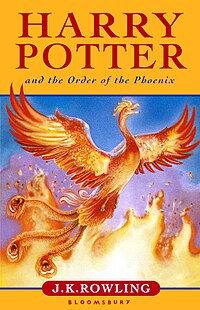Over the last couple of day's I've been part of an ongoing conversation via Twitter and some writing forums about synopses. Specifically, their use before you write a book. Should agents get a look at them before you invest months / years in writing a new book? Can you really sum up a book you haven't written yet in a way that'll be useful?
The number one thing that comes out of any sort of discussion about synopses is pretty clear - writers hate 'em! They're hard. In a way, harder than the actual book. 70,000 words of epic fantasy across time zones and different lives? Sure thing. Cram all of that into two pages? Come on, now...
The point of a synopsis is obvious, I'd think. You lay out the plot for agents / editors so they can judge the viability of the work without committing hours of (possibly wasted) reading time. They're busy people, and asking them to read an entire ms. that might not even make sense in the end is a big ask. Synopses also make sure the writer themselves has a good grasp of what's important in a story. Which characters will you miss out, understanding that their role is minor? Which battler scene or grand denouement will you sum up as 'They fight. They win', because you get that it's not actually the focus in that scene? Having to shorten your writing and condense it and concentrate it can bring into sharp relief what matters. That's a good thing, right?
 |
| I recently watch the movie of Order, and then started re-reading the book. Man, there's so much more than I'd remembered, or seen in the film. Winky the House-Elf! She got cut ... |
I think for a lot of writer - my included - it's easy to loose sight of the fact that writing synopsis can be considered good practice just as much as writing stories. Can you get the whole plot down to 2000 words? How about 1500? Now you're talking. Less?
Brevity may be the soul of wit, but it's also a pretty good indicator of writing quality. Rambling, flowery prose in a synopsis has to be a warning sign to a reader. If the writer can't even make this flow, what's the book going to do?
Seem to me a synopsis should
- Introduce the setting, time, and main characters within reason. Minor characters don't have to be named.
- Demonstrate an author's understanding of pacing and plot. Set the story up, set it in motion, and bring it to a conclusion.
- Show at least a basic understanding of your story's best qualities - what's unique, what's strange? Highlight those bits. You can leave out the subplot about a boy who finds he's a wizard.
- Show that an author can write well even in constrained circumstances. It's like a style test. Haiku deliberately enforces strict style restrictions in the belief that the formality and challenge can, in the end, create the most beautiful poetry. Your synopsis doesn't have to be a work of art, but it can still be good writing.
Just try to make sure synopses aren't all 'and then .. and then ... and THEN ..' if you're writing one. If it's not fun to write, it won't be fun to read.

I don't think they're ever fun to write! lol. Just out of curiosity...who is still making you write the dratted things? Do you have to write them for your agent? Or for publishers? I'm dreading having to write them again.
ReplyDeleteIt's voluntary, for m agent - discussing new projects and the next book to work on. The best way is to write synopses for the books I'm working on. They serve a purpose, at least...
ReplyDeleteOh gotcha. I shudder at the thought! lol
ReplyDelete